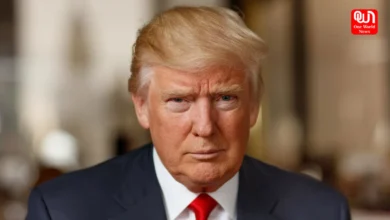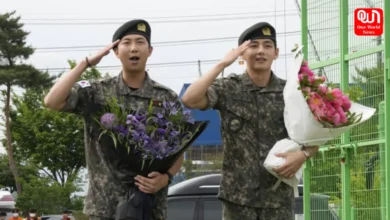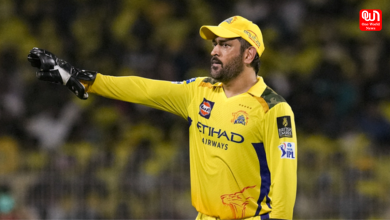The Future We Want- Seven Decades of United Nations

The Future We Want- Seven Decades of United Nations
United Nations held a discussion to mark its 70th anniversary recently. The topic of the discussion was ‘The Future We Want’. The discussion panel had several high profile dignitaries including Mr. Sachin Tendulkar, Bharat Ratna and UN Goodwill Ambassador, Kailash Satyarthi, Noble Laureate, Sharmila Tagore, UNICEF National Ambassador, Nandita Das, Celebrity Advocate of UNICEF India and Ban-Ki-moon, UN Secretary General.

Sharmila Tagore talking about maternal health
United Nations Secretary General Ban-Ki-moon started the discussion as he addressed the gathering. He said that he was very happy to be back in India. He has a very fond connection with India and thathe came to India in the early part of his career. He said, “I am speaking objectively when I say that India is an important country to me, but much more important for the United Nations. India’s collaboration with the United Nations is good for the country and for the world.”

United Nations Secretary General with Noble Laureate Kailash Satyarthi
He said that he visited the Sabarmati Ashram in Gujrat and reflected on the legacy of Mahatma Gandhi. Gandhi once said that India would be morally bound to help the United Nations and Ban-Ki-moon added to it that let us take up this cause so that India and the United Nations can help each other and help the World together. The future must be built ourselves. To mark the 70th anniversary of United Nation, he declared that United Nations means a better world and a world where peace will prevail.

The panel for the evening
Mr. Kailash Satyarthi was the next speaker. He talked about Child Rights and Labour. He started by sharing an anecdote from the early part of his life. He shared how he rescued a girl, in the year 1981, who was on the verge of being sold to a brothel. It wasn’t easy for him as he had to face a lot of flak for it but he did it against all odds. And that was the beginning of his crusade against child labour and child savoury. He said that he refused to accept that some people are born to serve and some are born to enjoy and live. He said that whenever he rescues a child he liberates himself with the child. The first tear of joy and freedom from the eye of a rescued child liberates him. Freedom is his inspiration, freedom is his power. The most shameful thing about today’s world is that slavery still exists. There cannot be, and there mustn’t be, any excuse allowing this. The number of children into labour and slavery is staggering. Towards the end, he congratulated the United Nations and Ban-Ki-moon to include these issues into its model of ‘Sustainable Development’. But said that there are more things ought to be done to eradicate child slavery.

Nandita Das expressing many contradiction we live in
Mr. Sachin Tendulkar followed Mr. Satyarthi. He shared his experience about working with sight impaired children in Ratnagiri. He said that it astonished him how much potential those children had. Those children even played cricket and it gave him goose-bumps seeing the frequency with which they hit the ball. He said, “It is because of my family that I am standing here in front of you and why I was able to achieve my dream. But there are millions of children in India and outside India who don’t have that privilege.” He further added that children are the future of the world and it is up to us to mould them as such to realise their dream. It is up to their elders and family members to make them feel secure and inspire them to achieve bigger things in life. Children learn everything by grasping the things they see and it is our responsibility to make them learn good things. He then said that the first thing he did after retirement was to become the UNICEF Ambassador for Hand wash and Sanitation. He would do his best to spread the message and will try to live up to his standards. He then said,“I also know that UN under the leadership of Ban-ki-moon along with Satyarthiji is trying to put an end to child slavery and it wouldn’t be out of place to say that we all will strive to achieve that goal together.”

Kailash Satyarthi talked about the stagger … d labour still persistent in the world
Sharmila Tagore took the next opportunity to address the gathering. She addressed the issue of the health of the mothers. “It’s only when the mothers are taken care of that the children will flourish” she said.
She advocated the issue of maternal health. She added, “It was twelve year ago that I committed myself to work with UNICEF. I took this forum to speak up for children whenever and wherever it was necessary.” For her that was one of the poignant moments of her life. She said that she would want to have a future where mothers are valued. So that the mothers who give birth and nurture are able to survive themselves, which is not always the case now. It is very rare that a child can survive if the mother dies while giving birth. So when we talk of maternal health, it is not just about one life but in fact two lives. She further added that the figures of women dying while giving birth is unbelievably high and those could easily be prevented. But nobody really connects the dots. People are apathetic about that. Our society, unfortunately, does not value our daughters as much as we ought to. She talked of the pathetic conditions of health institutes, where not even the basics of amenities required during childbirth are available. We need to focus on these things and correct the prevailing conditions.

Ban-Ki-moon with Sachin Tendulkar
Nandita Das was the concluding speaker of the day. She said that we are all complicit in the crime against our children. She said that she always used to have doubts and questions about the kind of world she would want her child to grow up into. And she felt nervous about the fact that her child would ask her many questions and she wouldn’t be able to have the answer for those questions. People live with many standards, people live with many contradictions and people have numbed themselves of many realities and people give themselves stories to carry on with life. But when a child asks an innocent yet pertinent question, people don’t have the answer. She shared her experience when her son, while watching people defecating in open, asked her “why can’t those people come and defecate in our bathroom when we have these many? Why are they defecating in the open?” and she couldn’t answer. She found those questions difficult to answer. Towards the end, she said that when a women becomes a mother, contradictions stare at her more than ever. She realised that what she wants for her child, she wants for all children and it’s a fair thing.







